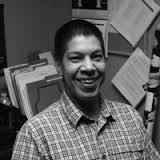Reclamation of traditional foods in Indigenous communities: Benefits, barriers and challenges - Stewart Sutherland & Tim Stevenson (2 Nov 2015)
Social and Emotional Wellbeing is an Indigenous concept that encapsulates a whole of life way of looking at the individual, family and community. Indigenous identity is inherent with the land and is shared with us through traditional food activities. The loss of traditional food practices, the sharing of culture and lore, along with other life skills, has left Indigenous communities seeking to reclaim traditional customs including food harvesting. The land is medicine and provides a linkage to our food, our health and our culture.
Food Matters Manitoba undertook research (The Standing Medicine People and Youth Taking Action) on environmental contamination on traditional food and medicine. This research provided insight on the impacts of Industry encroachment, upon traditional territories of the Indigenous people in the southern Manitoba. These studies also provided a valuable bridge between the understanding of Traditional Knowledge holder and scientific inquiry.
The implications of exposure to environmental contaminants has had a negative effect on not only the environment, but has influenced traditional food choices as well. The waterways through First Nation communities are a source of nourishment for a variety of traditional food and plant species, and ultimately First Nations themselves. However they are fragile and are susceptible to contamination. The results from the study indicate that there are low levels of herbicides, pesticides and heavy metals in the plants, animals and water life tested. This represents a low risk of getting sick from environmental contamination when consuming traditional food and medicines.
The food and medicines harvested from the land have nutritional and health benefits. Consequently, our research indicates that traditional harvesting should continue, and encouraged. As such, this work has led to a range of recommendations in relation to future research in the area of food security, sovereignty and harvesting, including cultural knowledge exchange and acquisition. It is theorised that traditional food and medicine activities will strengthen the cultural foundations of communities providing a protective element as well as supporting a healthier environment.
Click here to view this seminar Tim Stevenson is Cree/Ojibway from Peguis
First Nation, with family in Fox Lake, Manitoba, Canada. Currently, he is
working at Food Matters Manitoba as
Northern Indigenous Program Liaison and previously as Traditional Harvest
Research Coordinator. Previous to this, Tim worked extensively with First Nation
communities in Manitoba, providing research, advocacy, facilitation and liaison
addressing issues such as, health and wellness, education, employment and
training and youth development. He is passionate about learning traditional
customs and enjoys working with the community. Tim serves his community by
providing support to community cultural events and ceremony.
Tim Stevenson is Cree/Ojibway from Peguis
First Nation, with family in Fox Lake, Manitoba, Canada. Currently, he is
working at Food Matters Manitoba as
Northern Indigenous Program Liaison and previously as Traditional Harvest
Research Coordinator. Previous to this, Tim worked extensively with First Nation
communities in Manitoba, providing research, advocacy, facilitation and liaison
addressing issues such as, health and wellness, education, employment and
training and youth development. He is passionate about learning traditional
customs and enjoys working with the community. Tim serves his community by
providing support to community cultural events and ceremony.
"I have learned so much more about the food from the land and how it connects us to our identity and history as a people, we learn about our responsibilities to life, ideas such as respect for the land and learning how to practice respect through traditional harvesting practices, which interns allows us to recognize respect in other parts of our life and how we treat each other. The food from the land is a valuable asset to our people; it provides for a good life, we must ensure the younger generations develop skills through our traditional harvest practices."
 Stewart Sutherland was born and raised in Wellington NSW the heart of Wiradjuri
country. For over a decade he has worked in Indigenous health, in more recent
years focusing on identity and mental health particularly Social and Emotional
Wellbeing of the Stolen Generations (people forcibly removed from their
families). Currently undertaking a PHD at the Australian National University
Canberra, researching the interplay between reconciliation and the social
emotional wellbeing of people forcibly removed from their families.
Stewart Sutherland was born and raised in Wellington NSW the heart of Wiradjuri
country. For over a decade he has worked in Indigenous health, in more recent
years focusing on identity and mental health particularly Social and Emotional
Wellbeing of the Stolen Generations (people forcibly removed from their
families). Currently undertaking a PHD at the Australian National University
Canberra, researching the interplay between reconciliation and the social
emotional wellbeing of people forcibly removed from their families.

